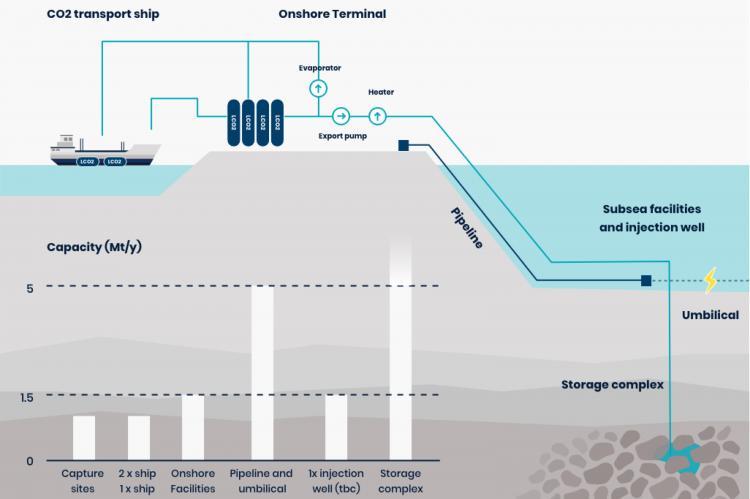Filling an Urgent Environmental Need for Mother Earth

Northern Lights, a key cross border infrastructure project that links the energy systems of EU countries with Norway and the UK to help the European continent meet its climate-neutrality ambition by 2050, has gotten a huge boost with Equinor's, Shell's and Total's decision to invest in the project -- Norway's first exploitation license for CO2 storage on the Norwegian Continental Shelf.
Building on more than 23 years of operation with safe CO2 storage in Norway, the Northern Lights Project will contribute a fundamental first step to realizing a European network for CO2 transport and storage. Indeed, Carbon Capture and Storage (CCS) is key to virtually all industrial sectors in the pursuit of a low carbon economy consistent with Europe’s commitment to the Paris Climate Agreement.
Plans for development and operation have been handed over to the Norwegian Ministry of Petroleum and Energy.
Northern Lights will be developed in two phases. Phase 1 includes concept capacity to transport, inject and store up to 1.5 million tons of CO2 per annum, Phase 2 will expand capacity by an additional 3.5 million tons of CO2 per annum, adding up to a total of 5 million tons of CO2 per annum. Phase 2 will be triggered based on market demand from large CO2 emitters, most likely on the European continent. Both phases of the Northern Lights will offer flexibility and capacity to receive additional volumes from European CO2 sources.
Equinor, on behalf of the partners, has already signed non-binding Memoranda of Understanding with several European companies for the development of value chains in carbon capture and storage. Binding commercial agreements will depend on positive investment decision from Norwegian authorities and for individual third-party projects. This cross-industry collaboration is a unique solution and enables handling of large CO2 volumes that would otherwise have been emitted. This new value chain and infrastructure for carbon capture and storage projects can only be developed with cooperation between governments and companies.
If the project receives a positive final investment decision from the Norwegian Government during the course of this year, Phase 1 is expected to be operational in 2024.

